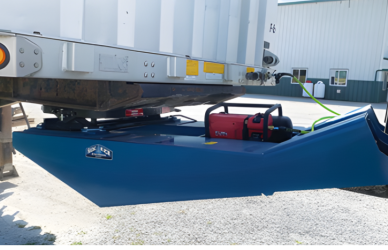As a trucker, effective route planning is crucial for maximizing efficiency, reducing costs, and ensuring timely deliveries. By implementing smart route planning strategies, you can optimize your routes, minimize fuel consumption, and streamline your operations. In this blog post, we will take a look at the benefits of effective route planning and provide you with valuable tips to plan your routes like a pro.
Benefits of Effective Route Planning
Time and Cost Savings: Efficient route planning helps you minimize detours, avoid congested areas, and identify the most direct routes. By reducing unnecessary mileage and optimizing driving time, you can save valuable hours on the road and decrease fuel costs.
Increased Productivity: Proper route planning allows you to optimize your workload by arranging deliveries in a logical order. By eliminating backtracking and minimizing idle time, you can handle more deliveries in a day, ultimately boosting your productivity.
Enhanced Customer Satisfaction: Timely deliveries are essential for maintaining strong relationships with your customers. Effective route planning ensures that you reach your destinations on time, enhancing customer satisfaction and loyalty.
Fuel Efficiency: By planning routes that minimize idle time and reduce distance traveled, you can significantly improve fuel efficiency. This not only saves costs but also helps reduce your carbon footprint, contributing to a greener environment.
Tips for Planning Routes as a Trucker
Utilize Reliable Mapping and GPS Tools: Take advantage of reliable mapping and GPS tools specifically designed for truckers. These tools consider factors like truck dimensions, weight restrictions, and traffic conditions, helping you find the most suitable routes.
Consider Traffic Patterns and Peak Hours: Stay informed about traffic patterns and peak hours along your routes. Try to schedule your deliveries during off-peak hours to avoid traffic congestion and delays.
Account for Rest Stops and Fuel Stations: Incorporate planned rest stops and fuel stations along your route. Ensuring regular breaks and refueling can help you maintain a healthy work-life balance and avoid unnecessary stops.
Be Aware of Road Restrictions and Regulations: Familiarize yourself with road restrictions, weight limits, and any specific regulations that apply to your truck. This knowledge will help you plan routes that adhere to legal requirements, avoiding fines and delays.
Monitor Weather Conditions: Keep an eye on weather forecasts and adapt your route planning accordingly. Inclement weather can affect road conditions, so it’s crucial to plan alternative routes or adjust your schedule as needed.
Collaborate with Other Truckers: Network and communicate with fellow truckers to gather real-time information about road conditions, construction sites, and any unexpected obstacles. Sharing insights and experiences can help you make informed decisions when planning your routes.
Effective route planning is a vital skill for truckers, enabling them to optimize their operations, reduce costs, and deliver goods efficiently. By implementing the right strategies, you can plan your routes effectively. Embrace these tips, adapt to changing conditions, and refine your route planning skills to become a more successful and efficient trucker.
Remember, successful route planning requires a combination of experience, careful consideration of various factors, and the use of reliable tools. By continuously refining your approach and staying updated with industry best practices, you can master the art of effective route planning and enjoy a smoother and more profitable trucking journey.











